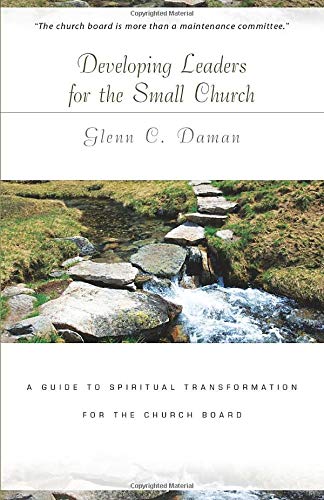Developing Leaders in the Small Church
About This Class
This course on developing leaders in the small church emphasizes the importance of leadership development and the challenges small churches face in doing so. It provides a biblical foundation for leadership development, focusing on examples from both the Old and New Testaments. The lesson then outlines principles for developing leaders in the small church, including fostering a culture of leadership development, identifying and recruiting potential leaders, equipping and empowering leaders, and providing ongoing support and accountability. The lesson concludes with strategies for leadership development in the small church, including one-on-one discipleship, small group leadership development, leadership training programs, and mentoring programs.
Glenn Daman

Lessons
- 0% CompleteIn this lesson, you gain insights into the challenges of serving on a church board and learn about the concept of servant leadership in the Bible, as well as the differences between secular and biblical leadership, with a focus on the role of a shepherd in leadership positions.0% Complete
- 0% CompleteThrough this lesson, you'll gain an understanding of the church as the body of Christ and a spiritual community, focusing on love and interconnectedness, and explore the differences between secular organizations and spiritual bodies, ultimately shaping your approach to spiritual leadership.0% Complete
- 0% CompleteThis lesson teaches the importance of organization in the church, exploring elements found in the Book of Acts and the significance of leadership, emphasizing the church's mission based on the Great Commission and the goal to make disciples.0% Complete
- 0% CompleteThrough this lesson, you will understand the crucial importance of character in Christian leadership, as it demonstrates God's work in our lives, allows for influential leadership, and fosters spiritual growth in others. By learning from biblical examples, you will discover the necessity of relying on God's strength and guidance in your leadership journey.0% Complete
- 0% CompleteIn this lesson, you will gain insight into the importance of the church board's role, focusing on spiritual care and guiding the congregation towards a healthy church, which includes unity, obedience, growth in understanding God's word, active evangelism, and authentic worship, while being motivated by service and eagerness to lead, and understanding the accountability of leadership.0% Complete
- 0% CompleteDiscover the significance of prayer in leadership through the lives of biblical figures like Moses, Samson, and Samuel, and understand how prayer enables leaders to face challenges, find victory despite failures, and maintain spiritual strength.0% Complete
- 0% CompleteIn Lesson 7, you learn about the watchman's role in protecting the church from external and internal threats, the importance of church discipline, and its scriptural basis in Hebrews 12. The lesson emphasizes holiness as the primary goal and discusses the role of discipline in promoting spiritual growth and purity for individuals and the congregation.0% Complete
- 0% CompleteThis lesson teaches you the essential role of shepherding in the church and how to make spiritual decisions that benefit both the congregation as a whole and the individuals within it, emphasizing the importance of prayer, seeking guidance from Scripture, and reflecting the character of God.0% Complete
- 0% CompleteGain insight into the challenges small churches face in equipping people for ministry and learn the biblical basis for laypeople's involvement in ministry, understanding how to provide direction, identify spiritual gifts, offer training and mentoring, create opportunities, and give support.0% Complete
- 0% CompleteThrough this lesson, you learn about the church's purpose to glorify God, represent His character to the world, and transform people into the character of Christ, while also understanding the importance of good theology, connecting it to Christian living, and realizing a leader's role in overseeing church theology and fostering transformation.0% Complete
- 0% CompleteThis lesson emphasizes the importance of teamwork in ministry, explaining the New Testament concept of team ministry, the role of coworkers with Christ, and how partnering with others helps overcome individual weaknesses and fosters corporate wisdom.0% Complete
- 0% CompleteAs change agents in the church, the board must adapt to societal changes while preserving the core message of the Gospel. This lesson emphasizes the importance of addressing sinful behavior, examining the health of the church, and learning from the apostles as change agents.0% Complete
- 0% CompleteIn this lesson, you'll understand the crucial role of administration in small churches, focusing on spiritual growth and the effective use of resources for God's glory, as well as the importance of recognizing God's authority and Scripture as the foundation for all administrative decisions.0% Complete
Class Resources
Recommended Books
Developing Leaders for the Small Church: A Guide to Spiritual Transformation for the Church Board
In his more than fifteen years as the pastor of a small church, Glenn Daman has learned what it takes to make a church board successful. In Developing Leaders for the Small...
